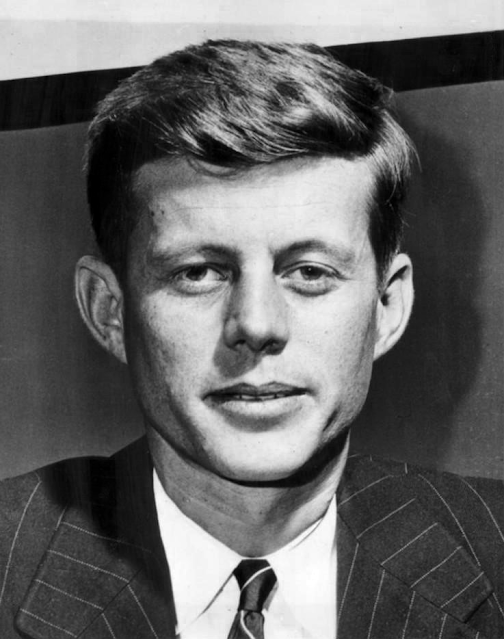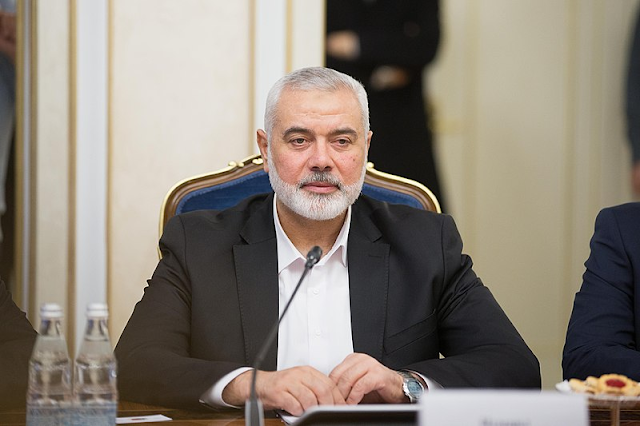African Jesus
(credit: Virginia Benedicte; public domain)
A Hopeful Christmas
Good day. Thank you for dropping by. I have one small announcement: the Chamber of Commerce has asked me to remind you that there are only a few shopping days left till Christmas. Just kidding. I enjoy Christmas shopping like I enjoy drinking bleach.
But it’s the meaning of this season, Christmas, that I want to write about today. And I promise to be more serious for the rest of this post.
What conclusions do we come to if we apply a moral realist view to the cultural phenomenon called “Christmas”? What do I see in the beliefs and customs that surround this man who probably lived from about 4 B.C. to about 33 A.D.? What are we celebrating? What did he stand for? I think more deeply about this question at Christmas time, as most of us do.
Like many thinkers in Western culture, I get fed up with how commercial Christmas has become.
The ads sometimes start before Remembrance Day. I find that very hard to take. The men and women who fought in the wars that the nations of the world got drawn into in the last century or so deserve a special time that is set aside just for them. November 11 is supposed to be that day. The rest of us ought to set aside time for them, showing respect and gratitude. Greedy merchants crowding into that time by advertising their Christmas junk infuriate me. I make a quiet vow when I see Christmas ads anytime from Nov. 1 to Nov. 12 to be sure that I do not buy whatever it is those ads are trying to sell – ever again. And in general, we give and receive too much stuff that we don’t need or even like. (“Hello, Little Gift. How long till you’re in the landfill?”)
I don’t like the commercialism that has poisoned Christmas, but I add to that, gluttony and drunkenness. We eat too much food and drink too many kinds of alcohol that we also don’t need or even like.
Landfill dump (credit: Cezary, via Wikimedia Commons)
Can anything save me from total disillusionment during the Christmas season? Yes. I couldn’t have said that for many years, but I can today. Ten years or so ago, I figured something out.
The way of humans on this world for the most part has been to take as much as they can as often and fast as they can. In our era, the philosophy of greed has even begun to threaten what once was taken for granted, namely the ecosystem of this planet. Perhaps in what I have to say today, I can give some hope to those of you who are beginning to despair at the indifference of our leaders toward environmental issues. But my focus will not be on environmental issues because they weren’t issues in Jesus’ time. His main gift to the human race was something else.
The worst consequence of human greed for many centuries of our history on this planet has been the biggest crime, the one that we do to each other. War. When earthquakes or hurricanes hit another land, we grieve for the people there, we send help, and we do what we can. But basically, we can handle natural disasters. The horrors people do to each other are in a different category altogether. A child can tell you that we have more than enough resources on this planet to feed, clothe, and shelter everyone in comfort. Our leaders’ sending us to war is not about making sure that people have enough to live in dignity. Wars are about vain people gaining face. Realizing that fact is what makes us feel so disillusioned with our own species, especially during the Christmas season of "peace on earth, goodwill to men".
And let me not mince words here. Historians estimate that of the horrors that have happened to people because of the aggression of other people, more than ninety percent have been caused by governments, not by criminals. Wars and genocides.
Mafia thugs are disgusting human beings, but they are small fry compared to the Hitlers and Stalins of the world. The Shakas, the Genghis Khans, the Caesars, the Alexanders, the Pol Pots, and the Joshuas. The war madness has infected every culture on earth.
Where, then, does Jesus fit in?
War had been ugly and pointless for centuries before Jesus ever came on the scene. Everything any war ever accomplished could have been accomplished without any bloodshed at all, if the people involved had agreed to debate the issues openly, negotiate, and compromise. He saw that. He also saw that the war technologies were improving all the time. Even in 30 A.D., he could see that humanity was on a path of improving weapons till it ended in disaster. Humans appeared to him, even then, to be headed for self-destruction.
The ways of greed, politics, and war and the improvements in our military technologies can be represented by lines on a graph of time. As the two lines climb forward across the graph – as our greed and our technology both keep growing - we watch in horror. We know that inevitably one day the lines will touch. There we will finally make a weapon capable of wiping out the whole human race at the same time as the sea of politics casts up a leader who will use it. There is a kind of paralyzing, mathematical certainty to this graph. Even to Jesus, two thousand years ago, it looked as if we were doomed to someday destroy ourselves. Bigger and bigger weapons, more and more greed. He saw this desperate situation taking shape even in his own time.
But he saw further, and he put into his own time a new way of seeing ourselves. A new worldview. He left us this: love one another as I have loved you. If you remember nothing else that I told you, remember this: love one another as I have loved you. You can do this. You really can. Just love your neighbor. Then all the good you can imagine will follow.
In the middle of the Roman Empire, Jesus’ time was a time when war and the ways of life that it forced people into were considered obvious. Almost every person in that empire would have thought debating the matter was childish. If you had begun to argue that war might not be necessary, they would have told you, “Oh, grow up!” Most would have looked at you like you had just grown donkey ears. The main thing they all prayed to their gods for was victory in battle.
All the recently conquered peoples in the Roman Empire in Jesus' day contained rebels who were eager to get even with the Roman conquerors. This was especially true of the Jews, the people among whom Jesus had been born and grown to manhood. They had many secret groups plotting sabotage and assassination all the time.
In this social milieu of jealousy, hate, and violence, people paid to go to arenas all over the Empire and watch men kill each other, right there in front of their eyes. Bloody corpses dragged away at the end. Their worldview was built on the assumption of violence.
Then Jesus came along and said: “It doesn’t have to be this way. If a man hits you on one cheek, turn the other to him. If he grabs your jacket, give him your shirt. If he forces you to walk a mile with him, walk three.” And he lived his values, all the way to his death. Others had said similar things, but Jesus, by the actions of his life and by the dramatic character of his death, caused people to listen and remember.
Beside that message, everything else he said and everything else that was ever said about him pales to insignificance.
Since those times, heroes all through history, even modern ones like Gandhi, Mandela, and King, have shown by real-world example that with enough courage, the way of non-violence really can work. Christians have mostly been less sincere in observing Jesus’ simple rule, but they have still gotten gradually kinder every century since Roman times. The horrible “games” of Jesus’ time were abolished in about 300 A.D.. In more modern times, no one goes to bear-baiting anymore, as they did 400 years ago, and people who secretly attend dog fights, once their secret is discovered, are hounded from our midst and quarantined in jails, as unfit to live with. Even then, if they ask sincerely for forgiveness, they can still be forgiven. Jesus gave us that too.
At first, the Romans didn’t consider Jesus’ ideas important. In fact, they thought his ideas were stupid. But well after he was gone, his cult – and a “cult” is what it was to the Romans – kept growing, in spite of hard efforts on the Romans' part to stamp it out. There was something about it that tugged at human emotions. Worst of all, it began to steal some of the sons and daughters of citizens all over the empire, even right in Rome. Many of these converts were teenagers, fed-up with the materialistic, hedonistic emptiness of their parents’ way of life.
The Roman Empire is long gone, as are many other empires. Too many to list. Jesus’ words are still here. Love your neighbor.
So, for me, was he divine? Was he the son of God that the churches claim he was? No, not to me. Or to be exact, he simply had a lot more of a quality that all of us have, the spiritual quality, the capacity to believe in, and live by, things not seen.
But what matters much more is that he put into the mix of ideas being passed back and forth by the human race, the simple idea that we can solve our differences without killing one another. Thus, he injected a new variable into the equations of human history. If we can learn to love our neighbors, we may make it through the era of greed and war and finally grow up. Emerge as a new, sensible species, a differently programmed species that no longer needs to keep itself fit by programming its young to be their own predators. In short, maybe, we can stop trying to toughen ourselves by war. We can find another way. Learn to keep ourselves strong by individual hard work and self-discipline instead of by killing one another.
Before him, our destroying ourselves was a mathematical certainty. Then, he inserted a little ‘maybe’. Maybe, we really can learn to love our neighbors.
For me, seeing the truth of that one big principle is more than enough to keep me from cynicism at Christmas time. Christmas, for me, is the time of year when I celebrate the fact that this gentle man entered into the flow of human history in the most warlike society that, up to his time, had ever existed, and changed – everything. He showed us a different way, and he gave us hope.
So what if some lying, greedy politicians won this latest round of elections? My struggle against them will go on. They can’t stop that as long as there is breath in my body. I have free will and a truth to live by. The rest is up to me.
Let materialism and greed fill the shopping malls to the roofs with glittering plastic junk. They can’t discourage me. I believe in something real that is beyond all of that.
We keep trying. We win some and we lose some. The struggle goes on. But there’s hope now. Before this one guy, as I see human history, anyway, there was none.
Merry Christmas, lads and lassies. Enjoy your families and friends.
Nelson Mandela at 19
(credit: Wikipedia)
Quote by Marianne Williamson (often used by Nelson Mandela):
Our deepest fear is not that we are inadequate. Our deepest fear is that we are powerful beyond measure. It is our light, not our darkness, that most frightens us. We ask ourselves, who am I to be brilliant or talented? Actually, who are you not to be? Your playing small doesn't serve the world. There's nothing enlightened about shrinking so that other people won't feel insecure around you. We are all meant to shine, as children do. We were born to make manifest the spiritual glory that is within us. It's not just in some of us; it's in everyone. As we let our own light shine, we unconsciously give other people permission to do the same. As we are liberated from our own fear, our very presence liberates others.












